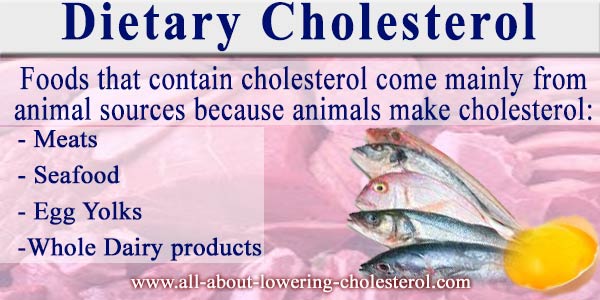
The right amount of dietary cholesterol (cholesterol consumed through food/diet) is a topic of debate. Years ago, scientists believed that the amount of cholesterol you consumed in your diet played a significant role in how high your blood cholesterol level climbed.
However, more recent research shows that dietary cholesterol is only half of the story since the majority of cholesterol is made by your body.
The other half of the story is about the relationship between cholesterol and fats.
It may surprise you to learn that your body could not survive without cholesterol.
Your body also uses cholesterol to create hormones (i.e. estrogen, testosterone), make Vitamin D, and produce bile, which is used to break down fats that you eat.
(1) Because cholesterol is so important to the proper functioning of your body, your body has its own manufacturing plant set up within your liver.
In fact, your body makes all the cholesterol you need.
Does Dietary Cholesterol Raise Blood Cholesterol Levels?
Your liver has the ability to make as much cholesterol as your body can use, so what happens to cholesterol that you consume through your diet?
Your body compensates for cholesterol that you eat by cutting its own cholesterol manufacturing. In a body that is functioning normally, this check and balance system should be enough to control cholesterol levels. However, not everybody balances dietary cholesterol intake with the amount being made by the body.
In these individuals a low cholesterol diet is needed to keep blood cholesterol levels in the normal range, below 200 mg/dL (below 5.2 mmol/L).
Dietary Cholesterol Recommendations
If your doctor recommended that you decrease your intake of dietary cholesterol you want to consume less than 300 mg per day. Foods that contain cholesterol come mainly from animal sources because animals make cholesterol. Foods that contain cholesterol include:
• Meats (organ meats, beef, poultry with skin on, pork, lamb, processed meats such as hot dogs)
• Seafood (shrimp, crab, lobster)
• Egg Yolks
• Whole Dairy products (cheese, cream, milk, sour cream, ice cream)
You do not have to completely avoid these foods, but for a diet low in cholesterol, you will want to limit your intake of these foods during your day.
Cholesterol and Fats Influence on Cholesterol
Your blood cholesterol level will not only be influenced by your intake of dietary cholesterol, but also by your intake of fats. Foods from animal sources tend to be higher in cholesterol and in saturated fats. This is another reason to limit your intake of meats and whole dairy products.
To improve your cholesterol profile, your diet should be rich in unsaturated fats found in avocados, nuts, and certain vegetable oils such as olive oil, peanut oil, and safflower oil. You can also enjoy a variety of high-fiber foods such as green leafy vegetables, whole grains, and fruits.
Experts show that a diet low in saturated fats and dietary cholesterol and high in unsaturated fats and fiber can lower your total cholesterol, lower LDL “bad” cholesterol, and triglycerides while at the same time raise your HDL “good” cholesterol level.
If your last blood test revealed that your cholesterol level was too high, you want to take step to lower your cholesterol naturally. Learn how to incorporate a heart smart diet, regular exercise, weight control, and natural supplements into your life with the help of these supplements.
Leave Dietary Cholesterol and go to Diet for Lowering Cholesterol
Or visit our homepage of All About Lowering Cholesterol Naturally.
